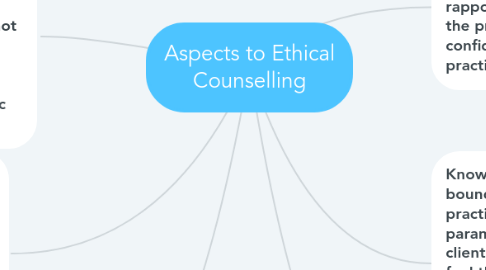Aspects to Ethical Counselling
von Sarah Short

1. Acknowledge personal bias and it is normal to have views and or opinions about discussions that occur in the counselling room Practitioners need to be sure not to allow this to enter into the therapeutic space so you can prevent from judgement interfering with the therapeutic relationship.
2. Always being congruent in session with a client. This will allow the client to learn to depend and rely on the practitioner for support and guidance with their presenting issues. This will also aid in the client feeling heard and understood.
3. Having access to clinical supervision. As this allows the practitioner to ensure they are working according to the code of ethics and guidelines according to their professional membership association.
4. Being trustworthy within the counselling relationship, as this will allow the client to develop rapport and trust in the ability of the practitioner and feel confident in the skills the practitioner is using.
5. Know your professional boundaries, know your scope of practice and work within these parameters. Boundaries allow a client to feel safe in sessions and feel that they are being cared for. Boundaries omit a feeling of safety for a client and this will aid in the therapeutic alliance with client and practitioner
6. Practitioners need to ensure they are conducting their practice by utilising best practice evidence based theories. Regular professional development opportunities will allow the practitioner to stay up to date with new evidence and changes to industry.


